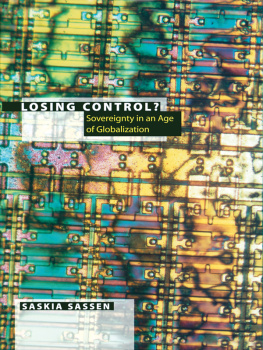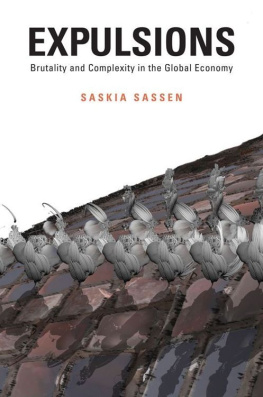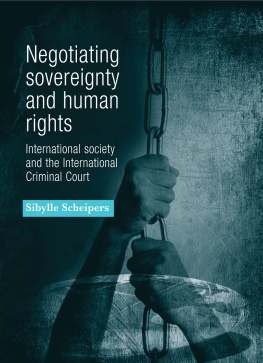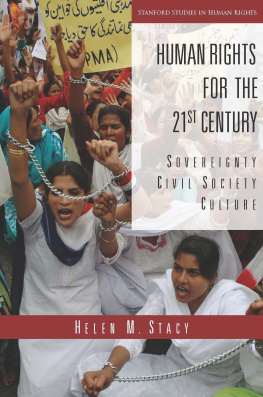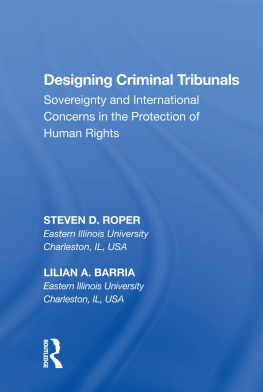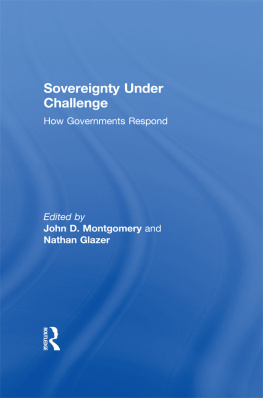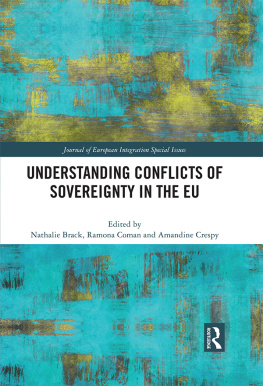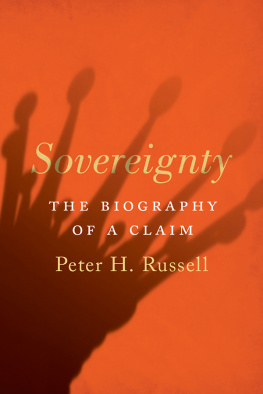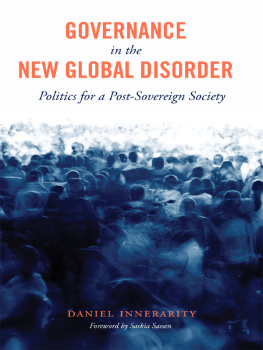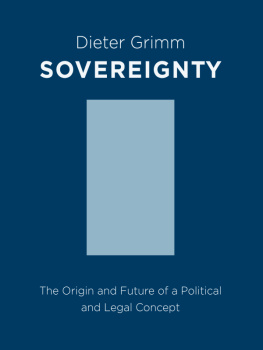LOSING CONTROL?
University Seminars
Leonard Hastings Schoff Memorial Lectures
The University Seminars at Columbia University sponsor an annual series of lectures, with the support of the Leonard Hastings Schoff and Suzanne Levick Schoff Memorial Fund. A member of the Columbia faculty is invited to deliver before a general audience three lectures on a topic of his or her choosing.
Columbia University Press publishes the lectures.
| 1993 | David N. Cannadine: The Rise and Fall of Class in Britain, 17002000 |
| 1994 | Charles Larmore: The Romantic Legacy |
| 1995 | Sashia Sassen: Losing Control? |
| Sovereignty in an Age of Globalization |
Columbia University Press
Publishers Since 1893
New York Chichester, West Sussex
cup.columbia.edu
Copyright 1996 Columbia University Press
All rights reserved
E-ISBN 978-0-231-52833-7
Library of Congress
Cataloging-in-Publication
Data Sassen, Saskia.
Losing control? : sovereignty in an age of globalization / Saskia Sassen,
p. cm. (University seminars/Leonard Hastings Schoff memorial lectures)
Includes bibliographical references and index.
ISBN 978-0-231-10608-5
1. Sovereignty. 2. State, The. 3. International economic relations.
4. Capital market. 5. Emigration and immigration.
6. Information society. I. Title. II. Series.
JC327.S27 1996
320.1'5dc20 9622691
A Columbia University Press E-book.
CUP would be pleased to hear about your reading experience with this e-book at .
For Willem S. Van Elsloo
CONTENTS
I am grateful to the Leonard Hastings Schoff Memorial Fund for its support; it was an enormous pleasure and honor to deliver the public lectures named after the fund. I want to thank the University Seminars, most particularly its director, Dean Aaron Warner, and its administrative assistant, Jessie Strader, the organizers of this annual series of lectures. I also want to thank Columbia University Press, especially its publisher and director, John Moore, for support and guidance, Anne McCoy for help during the production process, and Sarah St. Onge for her excellent copyediting; working with a press that is so supportive makes a big difference. Jagdish Bhagwati, Katherine Newman, and John Ruggie gave wonderful introductions to each of the lectures. Durval Diaz Jr. and Arturo Sanchez provided valuable research assistance. Finally, I owe a large debt to the people who came to these lectures, for their interest, engagement, good questions, and the discussions afterward.
At various stages, portions of the manuscript were read by a large number of people, who made comments and criticisms, who disagreed and agreed with me. I want to thank them all. They have made it a better book.
The public lectures that make up this book opened up for me a field of inquiry in which I am now deeply engaged. They represent the first phase of a larger project on governance and accountability in the global economy.
The growth of a global economy in conjunction with the new telecommunications and computer networks that span the world has profoundly reconfigured institutions fundamental to processes of governance and accountability in the modern state. State sovereignty, nation-based citizenship, the institutional apparatus in charge of regulating the economy, such as central banks and monetary policiesall of these institutions are being destabilized and even transformed as a result of globalization and the new technologies. What happens to processes of governance and accountability when the fundamental institutions upon which they rest and depend are thus destabilized and transformed?
In the first chapter, The State and the New Geography of Power, I examine how the formation of a new economic system centered on cross-border flows and global telecommunications has affected two distinctive features of the modern state: sovereignty and exclusive territoriality. What are the actual territorial and nonterritorial processes through which the global economy is constituted? To a large extent, global processes materialize in national territories. This leads to a need for deregulation and the formation of regimes that facilitate the free circulation of capital, goods, information, and services. Global cities are one example of how global processes extend into national territories and national institutional arrangements. I argue that globalization under these conditions has entailed a partial denationalizing of national territory and a partial shift of some components of state sovereignty to other institutions, from supranational entities to the global capital market.
Together with sovereignty and exclusive territoriality, citizenship marks the specificity of the modern state. It may also play a role in governing the global economy. The second chapter, On Economic Citizenship, discusses the institution of citizenship and the impact of a strengthening global economy on the continuity and formation of the rights we associate with it, particularly rights that grant the power to demand accountability from governments. Economic globalization has transformed the territoriality and sovereignty of the nation-state; it may have as great an impact on citizenship. History shows that the shape of modern citizenship owes much to the underlying conditions of society at large. As the global economy creates new conditions, the institution of citizenship may evolve yet again. The latest bundle of rights that came with the welfare state does not constitute the ultimate definition; indeed, some of those conditions may erode, as todays welfare state crises and the growing unemployment and inequality of earnings in all highly developed countries suggest. Do they signal a change in the conditions of citizens?
Once we accept the cultural and historical specificity of concepts of civil society and citizenship in Western social and political theory, we need to reckon, at least theoretically, with the impact of global forces that challenge the authority of the nation-state and civil solidarity. In such a world, what is the analytic terrain within which the social sciences need to examine the question of rights? Do we need to expand this terrain, to introduce new elements into the discourse?
In my examination of these questions, I use the notion of economic citizenship as a strategic research site and nexus. This notion is not part of the history and theorization of citizenship as conventionally understood. But if the specific conditions brought on by economic globalization have contributed to yet another major transformation/evolution in the institution of citizenshipand I believe they havethen we must consider the possibility that there exists a form of economic citizenship that empowers and can demand accountability from governments. The evidence supports this notion, but the so-called economic citizenship it identifies does not belong to citizens. It belongs to firms and marketsspecifically, the global financial marketsand it is located not in individuals, not in citizens, but in mostly corporate global economic actors. The fact of being global gives these actors power over individual governments, and it is this particular instantiation of the notion of economic citizenship that I address in the second chapter. I use the concept as a kind of theoretical provocation, outside the accepted lineage of the concept of citizenship.
In the third and final chapter, Immigration Tests the New Order, I look at the tension between denationalizing economic space and renationalizing political discourse in most developed countries. Immigration provides a crucial nexus in this tension. It often becomes the main and easiest target when the issue of renationalizing enters politics. But it also brings to the fore the contradictory role of the state at this time. The state itself has been transformed by its participation in the implementation of laws and regulations necessary for economic globalization and, as I discuss in , by its participation in the implementation of human rights. Under these conditions, what does it mean to say that the state is sovereign in the control of its borders vis--vis people? Has not sovereignty itself been transformed? Can we continue to take it for granted, as much of the literature on the state does over and over again, that the state has exclusive authority over the entry of non-nationals? Is the character of that exclusive authority today the same as it was before the current phase of globalization and the ascendance of human rights?

